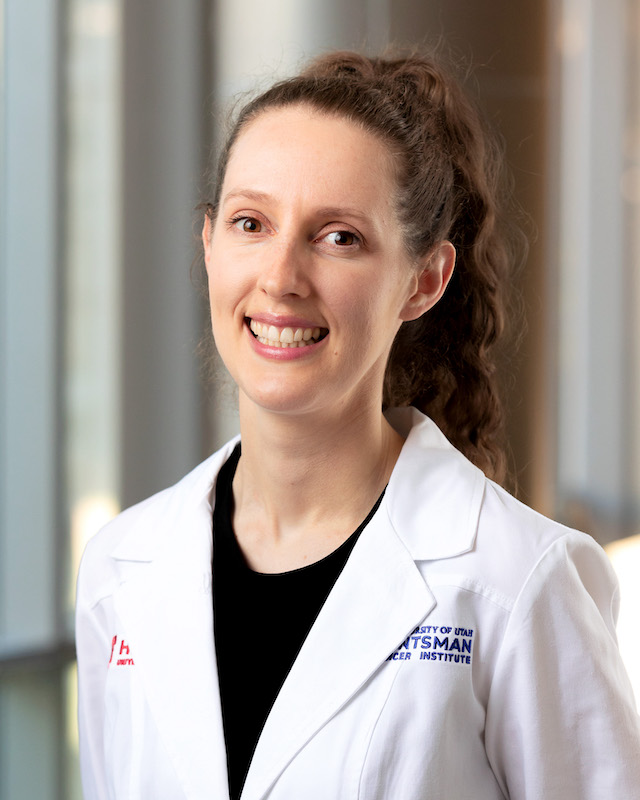Arabella Young
Assistant Professor of Microbiology and Immunology
Cancer Immunotherapy, Immune-related Adverse Events, Tumor Microenvironment, Autoimmunity, Diabetes

Molecular Biology Program
Education
B.Biotech. University of Tasmania
Ph.D. The University of Queensland
Research
The immune system plays a critical role in mediating a number of disease processes, including the development of cancers through immune suppression and autoimmunity by overzealous immune activation. Our lab is dedicated to investigating strategies that fine-tune the immune response to improve both treatment safety and efficacy for patients. We are particularly interested in the mechanism by which cancer immunotherapies, which have been shown to improve patient survival across multiple cancer types, cause a broad range of autoimmune side-effects. We interrogate clinical samples for biomarkers of irAE susceptibility and have developed unique preclinical models, such as novel transplantable tumors for use in autoimmune-prone mice, to further our understanding of immune regulation in these different disease contexts.
We have graduate student projects available that aim to understand; 1) whether immune checkpoint inhibitor-induced autoimmune side-effects may be inhibited without affecting the therapeutic response towards tumors, 2) combinatorial immunotherapeutic strategies to reinvigorate the anti-tumor immune response without initiating immune-related side-effects, and 3) the influence of environmental components (such as microbiome and diet) towards both anti-tumor immunity and autoimmunity. Together, these integrated immunological model systems will allow us to engineer better therapeutic strategies for clinical utility.
Dr. Young provides mentorship for high school students, undergraduates and graduate students both in the United States and in Australia. Her lab environment promotes independent-thinking, and encourages new areas of interdisciplinary translational research driven by collaborative opportunities.
References (Selected Publications)
- Quandt, Z., Jacob, S., Fadlullah, M.Z.H., Wu, C., Wu C., Huppert, L., Levine, L. S., Sison, P., Tsai, K. K., Chow, M., Kang, J. H., Hwang, J., Lee, J. C., Oglesby, A., Venegas, J., Brintz, B. J., Tan, A. C., Anderson, M. S., Rosenblum, M. D., Young, A*., Daud, A. I.* (2024). Phase II trial of pembrolizumab, ipilimumab, and aspirin in melanoma: clinical outcomes and translational predictors of response. BJC Rep 2, 46.
- Cina ML, Venegas J, Young A (2023). Stocking the toolbox-Using preclinical models to understand the development and treatment of immune checkpoint inhibitor-induced immune-related adverse events. Immunol Rev. 318(1):110-137.
- VanDyke D, Iglesias M, Tomala J, Young A, Smith J, Perry JA, Gebara E, Cross AR, Cheung LS, Dykema AG, Orcutt-Jahns BT, Henclová T, Golias J, Balolong J, Tomasovic LM, Funda D, Meyer AS, Pardoll DM, Hester J, Issa F, Hunter CA, Anderson MS, Bluestone JA, Raimondi G, Spangler JB (2022). Engineered human cytokine/antibody fusion proteins expand regulatory T cells and confer autoimmune disease protection. Cell Rep, 41(3):111478.
- Kang JH, Bluestone JA, Young A (2021). Predicting and Preventing Immune Checkpoint Inhibitor Toxicity: Targeting Cytokines. Trends in immunology, 42(4), 293-311.
- Quandt Z*, Young A*, Perdigoto AL*, Herold KC, Anderson MS (2021). Autoimmune Endocrinopathies: An Emerging Complication of Immune Checkpoint Inhibitors. Annual review of medicine, 72, 313-330.
- Young A, Quandt Z, Bluestone JA (2018). The Balancing Act between Cancer Immunity and Autoimmunity in Response to Immunotherapy. Cancer immunology research, 6(12), 1445-1452.
- Young A, Ngiow SF, Gao Y, Patch AM, Barkauskas DS, Messaoudene M, Lin G, Coudert JD, Stannard KA, Zitvogel L, Degli-Esposti MA, Vivier E, Waddell N, Linden J, Huntington ND, Souza-Fonseca-Guimaraes F, Smyth MJ (2018). A2AR Adenosine Signaling Suppresses Natural Killer Cell Maturation in the Tumor Microenvironment. Cancer research, 78(4), 1003-1016.
- Young A*, Ngiow SF*, Madore J, Reinhardt J, Landsberg J, Chitsazan A, Rautela J, Bald T, Barkauskas DS, Ahern E, Huntington ND, Schadendorf D, Long GV, Boyle GM, Hölzel M, Scolyer RA, Smyth MJ (2017). Targeting Adenosine in BRAF-Mutant Melanoma Reduces Tumor Growth and Metastasis. Cancer research, 77(17), 4684-4696.
- Ngiow SF*, Young A*, Blake SJ, Hill GR, Yagita H, Teng MW, Korman AJ, Smyth MJ (2016). Agonistic CD40 mAb-Driven IL12 Reverses Resistance to Anti-PD1 in a T-cell-Rich Tumor. Cancer research, 76(21), 6266-6277.
